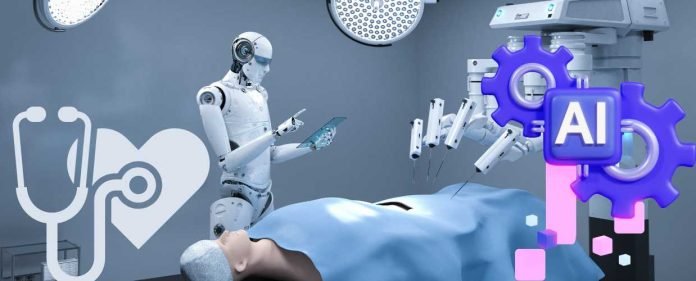The rapid advancements in artificial intelligence (AI) have catapulted this technology to the forefront of healthcare innovation. The integration of AI in healthcare has ushered in a new era of possibilities, transforming how we diagnose, treat, and manage medical conditions. As AI infiltrates every aspect of the healthcare landscape, its potential to revolutionize patient care is becoming increasingly evident.
AI in Diagnostics: A Paradigm Shift
One of the most remarkable applications of AI in healthcare lies in diagnostics. The accuracy and speed at which AI algorithms can analyze medical imaging data are game-changing. From detecting subtle anomalies in X-rays to pinpointing intricate patterns in MRIs, AI’s capabilities have the potential to revolutionize the diagnostic process. By harnessing the power of AI in healthcare, medical professionals can enhance their diagnostic accuracy and reduce the time required for preliminary assessments.
Moreover, AI’s role in diagnostics goes beyond traditional imaging. With the integration of AI-driven predictive analytics, healthcare providers can identify early signs of diseases and develop proactive treatment strategies. This shift from reactive to proactive care marks a significant advancement in patient outcomes and underscores the transformative impact of AI in healthcare.
Optimizing Treatment through AI
Utilizing AI in treatment strategies marks another milestone in the healthcare landscape. AI-powered algorithms can sift through immense medical data, from clinical trials to patient records, to identify optimal treatment plans for individual patients. This personalized approach ensures that patients receive the most effective interventions and minimizes the risk of adverse reactions.
AI’s capabilities also extend to drug discovery—identifying potential drug candidates traditionally involved years of laborious research. However, AI algorithms can rapidly analyze molecular structures, predict drug interactions, and suggest novel compounds for further investigation. This convergence of AI and pharmaceuticals has the potential to accelerate drug development timelines, bringing life-saving medications to patients in a fraction of the time.
Challenges of AI in Healthcare
While the integration of AI in healthcare holds immense promise, it has its challenges. One primary concern is the potential displacement of healthcare professionals due to the automation of specific tasks. However, viewing AI as a tool that complements human expertise is crucial, freeing healthcare providers to focus on more complex and nuanced aspects of patient care.
Additionally, the ethical implications of AI in healthcare must be addressed. The access to sensitive patient data for AI analysis raises questions about data privacy and security. Striking a balance between leveraging patient data for improved care and safeguarding patient privacy is paramount. Ethical guidelines and stringent regulations must be established to ensure AI’s responsible and transparent use in healthcare.
Conclusion
In the rapidly evolving healthcare landscape, AI stands as a beacon of innovation, promising to reshape the industry as we know it. AI’s potential to enhance patient care is unparalleled, from diagnostics to treatment optimization. As the healthcare sector embraces AI-driven advancements, addressing challenges while upholding ethical principles is crucial. By harnessing AI’s power responsibly, we can unlock a future where healthcare is more efficient, personalized, and patient-centered. As we navigate this transformative journey, one thing is clear: AI in healthcare is not just a technological advancement but a paradigm shift that holds the key to a healthier world.



